Some of your staff may find it physically or mentally harder to ease back into work following Coronavirus. Raising disability awareness and providing health support could make a big difference to your staff, managers and increase your bottom line.
Did you know that the UK has over 11 million people with a limiting disability, impairment or long term illness? And that the prevalence of disability rises with age?
Around 16% of working-age adults are disabled, as are 45% of adults over State Pension age.
Cornwall itself has an ageing population, with over 18,000 people over 65 in our workforce. So how does this impact your business?
We spoke to Sue Willmott and Grace Williams from Sue Willmott HR and Careers Consultancy who said there’s a strong business case for supporting staff with a disability or health condition.
Giving businesses like yours access to a larger range of talent, the ability to retain skills, and the chance to support the creation of a diverse workforce.
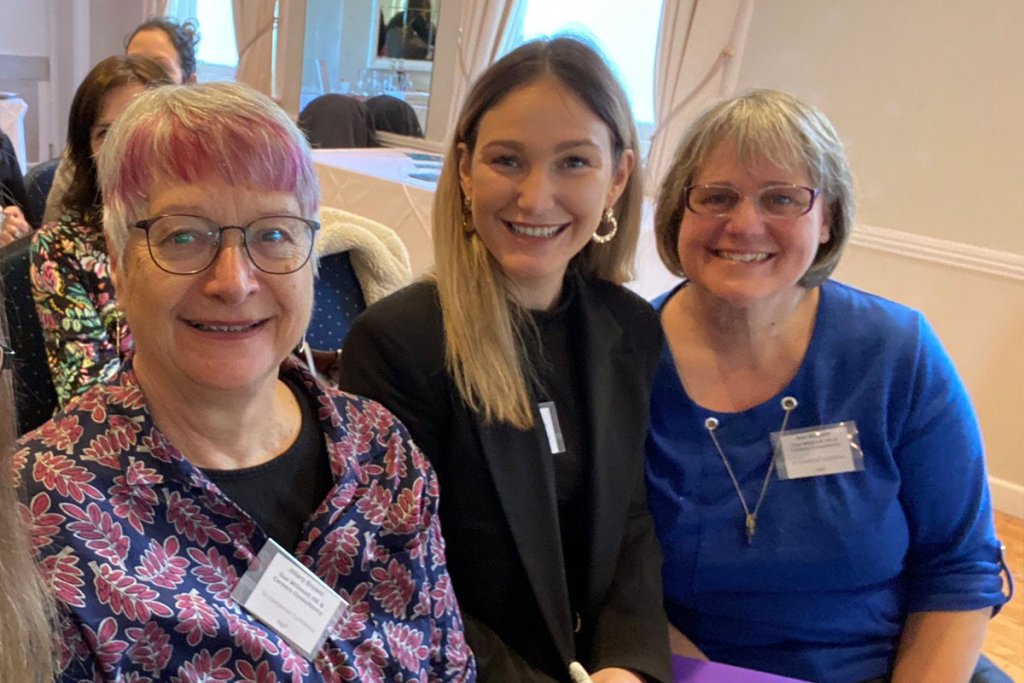
How to support your staff who have a disability
During Coronavirus life has changed for everyone. Grace said:
“Additional guidance was given to people who fell into vulnerable categories. This may have been the first time someone informed their employer about a long-term health condition or disability. You may need to be flexible and make adjustments. From a cost perspective that far outweighs the costs of recruitment and onboarding.”
To help ensure your business is inclusive, Grace recommends staying up to date with current legislation.
“Small businesses should be aware of national schemes such as Disability Confident and Access to Work. They should also be aware of Charities like Remploy who specialise in ‘return to work’ and ‘in-work’ support.“
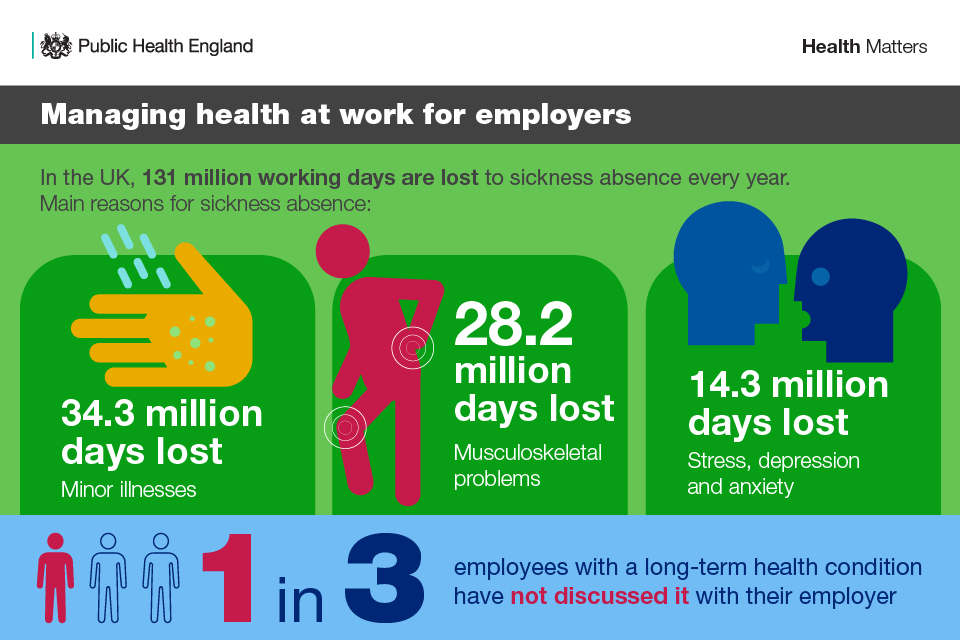
Workplace adjustments
“Having a workplace adjustment process is critical to facilitating effective working arrangements, with line managers being familiar and confident with these processes. Training also gives managers the confidence to have conversations about health, and to offer more support.”
For day-to-day working, Sue recommends using structures and systems that employees are used to, especially with new ways of working.
“Organise back to work interviews and welfare meetings with your staff, alongside their line manager or key person. This will allow you to consult and to agree on follow up steps to make workplace adjustments.“
Confidentiality and legislation
Staying up to date with current legislation will help to ensure your business is inclusive. The Beacon offers support for managing mental health, disability and long term health conditions in the workplace. You can set up a business profile and ask for legal guidance.
Grace also says:
“Small businesses should be aware of national schemes such as Disability Confident and Access to Work. Charities like Remploy also specialise in ‘return to work’ and ‘in-work’ support for employees with a disability or health condition.
“Adhering to GDPR guidelines and respecting confidentiality is essential at every stage while safeguarding the concerns and wellbeing of your managers too. Companies offer occupational health support which can be useful. Some are costly so research first or ask for recommendations. Businesses can also take subscriptions from organisations who provide confidential support phone lines.”
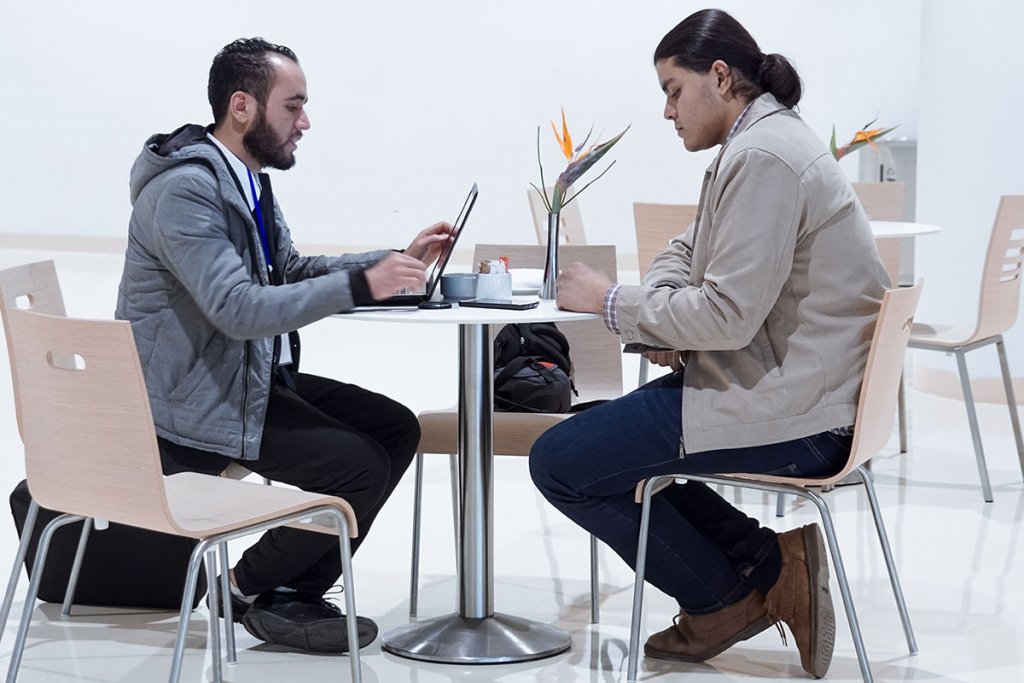
Build an inclusive working environment
Build a trusting and open working environment for your staff who have a disability is important. Sue suggests providing confidential questionnaires before people start or return to work to help people share their personal information.
“Raising awareness of disability-related and health-related issues in your workplace could help to facilitate a step-change in the inclusivity of your working environment. Networking with organisations who champion diversity will also give you access to support, resources and best practices.”
Sue Willmott HR and Careers Consultancy
Sue Willmott HR and Careers Consultancy are just one of the hundreds of businesses who form part of our supportive network.
Stay connected by joining our knowledge exchange scheme where you can access insights from research and business experts, and tune into our exclusive webinars.

_________________________________________
Have you already signed up to our newsletter…?
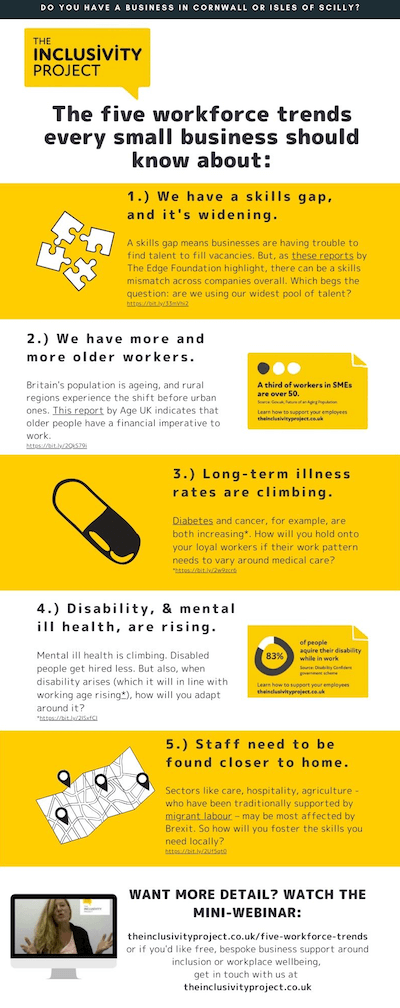
You’ll also hear about all opportunities to get business support if you’re in Cornwall or Isles of Scilly, and to be the first to hear about the research that comes out of The Inclusivity Project.

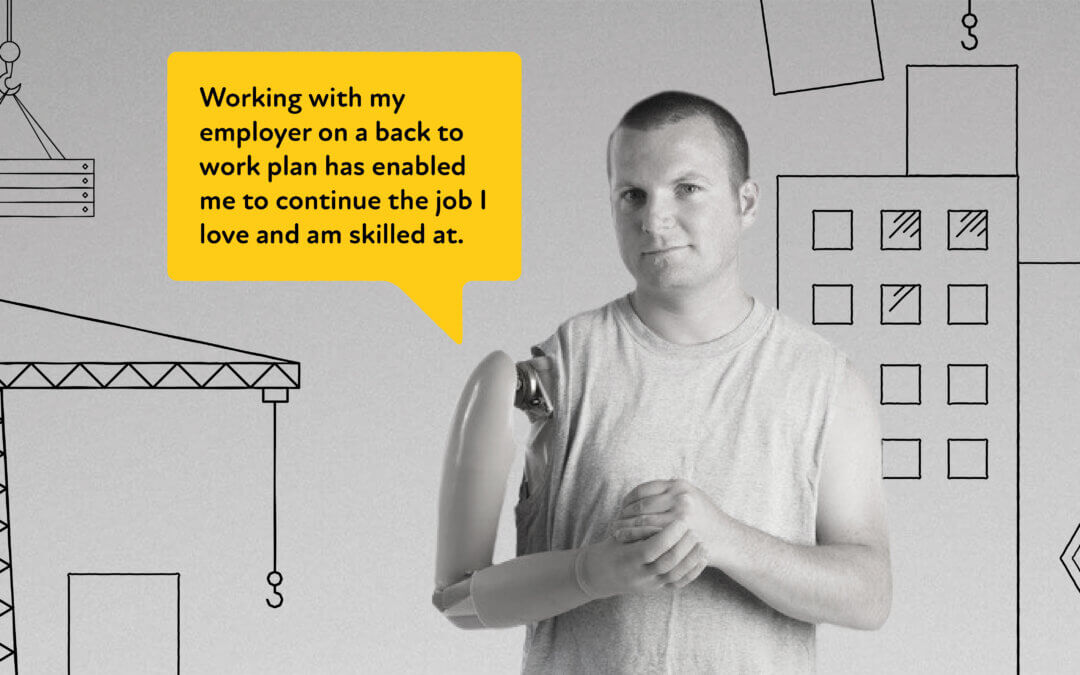
Recent Comments